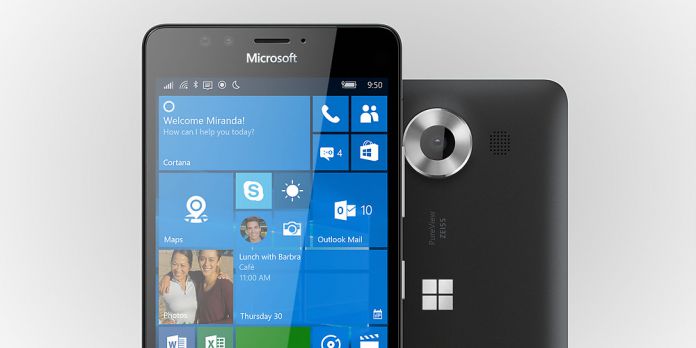Belfiore, Corporate Vice President of Windows, took to Twitter to describe the situation. He explains that the company can no longer justify feature support when the app gap remains a problem. The executive says Microsoft has consistently tried to entice developers, but investment in the platform has been lacking. He says the company paid developers, wrote applications for them, but still it was hard to compete with iOS and Android. Moving forward, Belfiore says Microsoft will continue to support Windows 10 Mobile with bug fixes and patches. However, the company will no longer focus on new features. Consequently, this also means that building new devices for the platform is pointless.
— Joe Belfiore (@joebelfiore) October 8, 2017
— Joe Belfiore (@joebelfiore) October 8, 2017 As mentioned, it is hardly the biggest surprise in the world. Microsoft has been consistently shunning Windows 10 Mobile for some time. On the hardware front, the company put a major nail in the platform’s coffin by pulling its Lumia brand from the market. Without Microsoft’s own hardware support, developers were even less enthused about creating for the ecosystem. Even Microsoft’s own apps have regularly failed to land on Windows phone, with the company favouring iOS and Android heavily. There are some obvious questions that are worth asking. The first is whether users should now abandon the platform. While many have already jumped ship, there are plenty of hold outs who hoped Microsoft would kick-start Windows 10 Mobile back into life. Now that is not going to happen, Belfiore basically said the general user should move to another platform. As we reported before, Belfiore and Microsoft founder Bill Gates have already moved away from Windows phone. In his tweets, the executive said the app diversity of rivals means most users should consider the switch. However, there is more nuance for businesses. Belfiore says Microsoft will continue to support its enterprise users, although no new features will arrive. Make no mistake, this is the death of Windows 10 Mobile and maybe Windows phone. I have often argued on these pages that Microsoft cannot entirely nix its mobile output because of the Universal Windows Platform (UWP). However, it seems the company no longer has justification to keep running an ecosystem that very few are using and even less are adopting.
— Joe Belfiore (@joebelfiore) October 8, 2017
— Joe Belfiore (@joebelfiore) October 8, 2017
Windows phone in the future
What this means for the future is unclear. CEO Satya Nadella and HoloLens chief Alex Kipman have both teased the company’s next mobile hardware will redefine what a phone is. However, it is now unlikely that any potential device would run Windows 10 Mobile. Considering Kipman has discussed mixed reality as the next mobile frontier, could Microsoft one day debut smartphone hardware that runs Windows Mixed Reality? I will leave the speculation at that, simply because considering Belfiore’s admission, it seems Microsoft is slowly turning into a mobile software company. This means the company’s services will be available on iOS and Android, but new hardware now seems increasingly unlikely. Goodbye Surface Phone.




